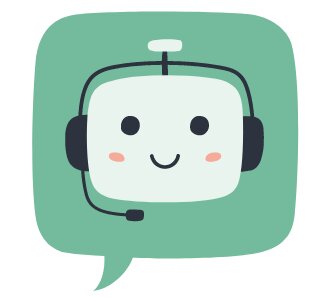
The Future of AI: Innovations That
Artificial Intelligence (AI) is no longer a distant dream but a driving force shaping the world around us. From healthcare breakthroughs to everyday convenience, AI innovations are transforming industries and our daily lives. As we look to the future, AI’s potential promises to revolutionize how we work, learn, and interact with the world. This article delves into some of the most exciting advancements in AI and their far-reaching implications.
AI in Healthcare: A Revolution in Saving Lives
The healthcare sector has witnessed remarkable progress thanks to ChatGPT. Future advancements will bring even greater benefits, including:
- Early Diagnosis: AI-powered tools like imaging analysis systems can detect diseases like cancer with over 95% accuracy (Harvard Medical School, 2023).
- Personalized Treatment Plans: AI systems analyze patient histories, genetic data, and lifestyle to tailor medical solutions.
- Drug Discovery: Reducing the time to develop new medicines from years to mere months.
By 2030, it’s predicted that AI could help save over 10 million lives annually by enabling quicker and more accurate medical decisions (World Economic Forum, 2024).
Education: Customizing Learning for All
The future of AI in education lies in personalized learning experiences. AI tools like ChatGPT are already making strides in this area. Here’s how:
- Adaptive Learning Platforms: AI systems identify students’ strengths and weaknesses to create tailored curricula.
- 24/7 Assistance: ChatGPT and similar tools provide instant answers, ensuring learning is uninterrupted.
- Interactive Simulations: Virtual environments powered by AI let students experience hands-on learning, even in remote settings.
Research from Stanford University (2024) suggests that AI could increase student retention rates by 20% due to its ability to adapt to individual learning styles.
AI and the Workplace: Redefining Productivity
AI is not replacing jobs but reshaping them. In the workplace, AI enhances efficiency through:
- Automation of Repetitive Tasks: Allowing employees to focus on strategic initiatives.
- Data Analysis and Insights: AI processes large volumes of data in seconds, offering actionable insights.
- Virtual Assistants: Tools like ChatGPT handle customer queries, draft documents, and streamline communication.
By 2025, AI is expected to contribute $15.7 trillion to the global economy, primarily through productivity enhancements (PwC, 2023).
Transportation: Smarter, Safer Roads
Autonomous vehicles are among the most anticipated advancements in AI. They promise to:
- Reduce Accidents: AI-driven systems react faster than humans, potentially decreasing road fatalities by up to 90% (WHO, 2024).
- Optimize Traffic Flow: Smart traffic lights and AI-powered navigation systems reduce congestion.
- Enhance Public Transport: AI can manage schedules and routes dynamically based on passenger demand.
By 2040, it’s estimated that 60% of vehicles on the road will incorporate AI in some form.
Environmental Sustainability: AI for a Greener Planet
AI can help combat climate change and promote sustainability through:
- Energy Optimization: AI systems predict energy demand and manage supply efficiently.
- Waste Management: AI-powered robots sort recyclable materials with over 95% accuracy (MIT, 2024).
- Climate Modeling: Advanced AI models provide accurate predictions, helping policymakers make informed decisions.
A McKinsey report (2023) highlights that AI-driven solutions could reduce global emissions by up to 10% by 2035.
Ethical AI: Challenges and Solutions
As AI continues to evolve, ethical considerations become paramount. Future innovations must address:
- Bias in AI Algorithms: Ensuring fairness in decision-making processes.
- Data Privacy: Protecting user information from misuse.
- Accountability: Clarifying who is responsible when AI systems make mistakes.
Organizations like OpenAI are actively working to create transparent and ethical AI tools, such as ChatGPT, that prioritize user trust and security.
H2: Questions and Answers
Q1: How will AI impact jobs in the future?
AI will enhance jobs by automating repetitive tasks, allowing humans to focus on creativity and strategy. However, it may also require workers to upskill and adapt to new roles.
Q2: Can AI truly make healthcare more accessible?
Yes. AI-powered tools like ChatGPT and diagnostic systems reduce costs and make expert advice available even in remote regions.
Q3: What role will AI play in combating climate change?
AI contributes by optimizing energy usage, improving waste management, and providing accurate climate models to inform policies.
Q4: Are there risks associated with the widespread use of AI?
Some risks include data privacy breaches, algorithmic bias, and over-reliance on automated systems. Mitigating these requires strict regulations and ethical practices.
Q5: How is ChatGPT contributing to AI advancements?
ChatGPT is transforming communication, education, and business operations by offering intelligent, human-like assistance across multiple domains. Explore its capabilities at ChatGPT.










